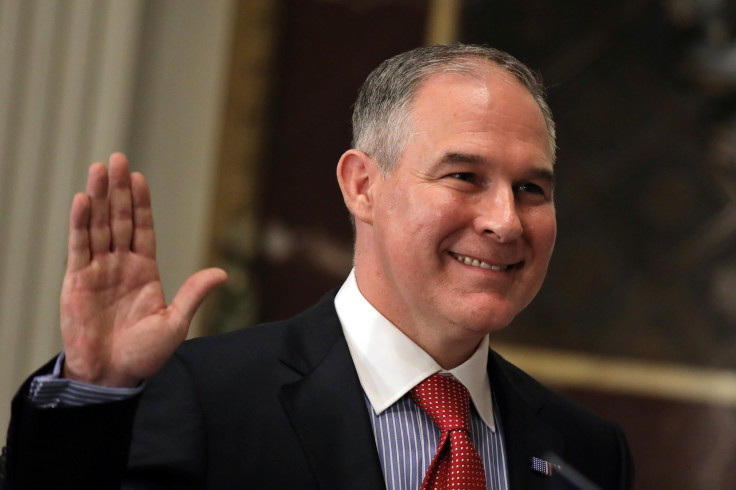What Is Chlorpyrifos? EPA's Scott Pruitt Decides Not To Ban Pesticide Said To Harm Children's Brains

U.S. Environmental Protection Agency (EPA) Administrator Scott Pruitt decided to deny a petition to ban the pesticide chlorpyrifos, which is said to harm children’s brains, the agency announced Wednesday.
During the Barack Obama administration, the EPA proposed to revoke all uses of the pesticide on food after a petition from the Natural Resources Defense Council and Pesticide Action Network North America. Recently, more than 63,000 people signed a petition from the Environmental Working Group (EWG), Just Label It and the Food Revolution Network asking Pruitt to ban the pesticide.
Read: Spider Food: They Kill 400-800 Million Tons Of Insects Every Year
Under Trump’s administration, the EPA decided chlorpyrifos is “crucial to U.S. agriculture” and added that previous conclusions of epidemiological studies looked at by the agency during the Obama administration were “novel and uncertain.”
“We need to provide regulatory certainty to the thousands of American farms that rely on chlorpyrifos, while still protecting human health and the environment,” said Pruitt in a statement. “By reversing the previous Administration’s steps to ban one of the most widely used pesticides in the world, we are returning to using sound science in decision-making – rather than predetermined results.”
The chemical is sprayed on crops including, apples, oranges, strawberries and other foods.
Natural Resources Defense Council and the Pesticide Action Network in 2007 petitioned the EPA to ban food uses of the pesticide, which has been used since 1965. The groups then sued the agency to force a ruling on the petition. The EPA then proposed a ban on the pesticide in October 2015 and was ordered by the court to issue a final decision on the petition by Friday.
Read: Trump Conflicts Of Interest: Emails Expose EPA Chief Scott Pruitt's Ties To Oil And Gas Companies
Nonprofit organizations expressed their disappointment in Pruitt’s decision to deny the petition.
“Pruitt and the Trump administration’s decision ignored overwhelming evidence that even small amounts of chlorpyrifos can damage parts of the brain that control language, memory, behavior and emotion,” said the nonprofit EWG in a statement. “Multiple independent studies have documented that exposure to chlorpyrifos impairs children's IQs, and EPA scientists' assessments of those studies concluded that levels of the pesticide found on food and in drinking water are unsafe.”
The agency’s analysis of effects of chlorpyrifos on children derived from studies by Columbia University, Mount Sinai School of Medicine and the University of California, Berkeley.
The study by Columbia analyzed levels of the pesticide in blood taken from umbilical cords when children were born. Over the years, researchers gathered data on minors who had been exposed to different levels of chlorpyrifos. When the children were 7, the IQ of those who were exposed to high levels of the pesticide was 1.4 percent lower than kids who hadn’t been exposed to chlorpyrifos at all. Working memory also declined by 2.8 percent.
The EWG accused Pruitt of siding with the pesticide industry.
“We're seeing what happens when President Trump gives an unqualified political hatchet man license to disregard reams of evidence from dedicated scientists," said EWG Ken Cook in a statement. "Under President Trump and Scott Pruitt, the EPA is fast becoming an agency in the business of safeguarding the profits of pesticide companies and the rest of the chemical industry, not human health.”
Environmental groups will return to court to order the EPA “to take action” to protect children, according to the Earthjustice managing attorney Patti Goldman.
© Copyright IBTimes 2025. All rights reserved.



















